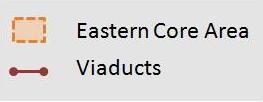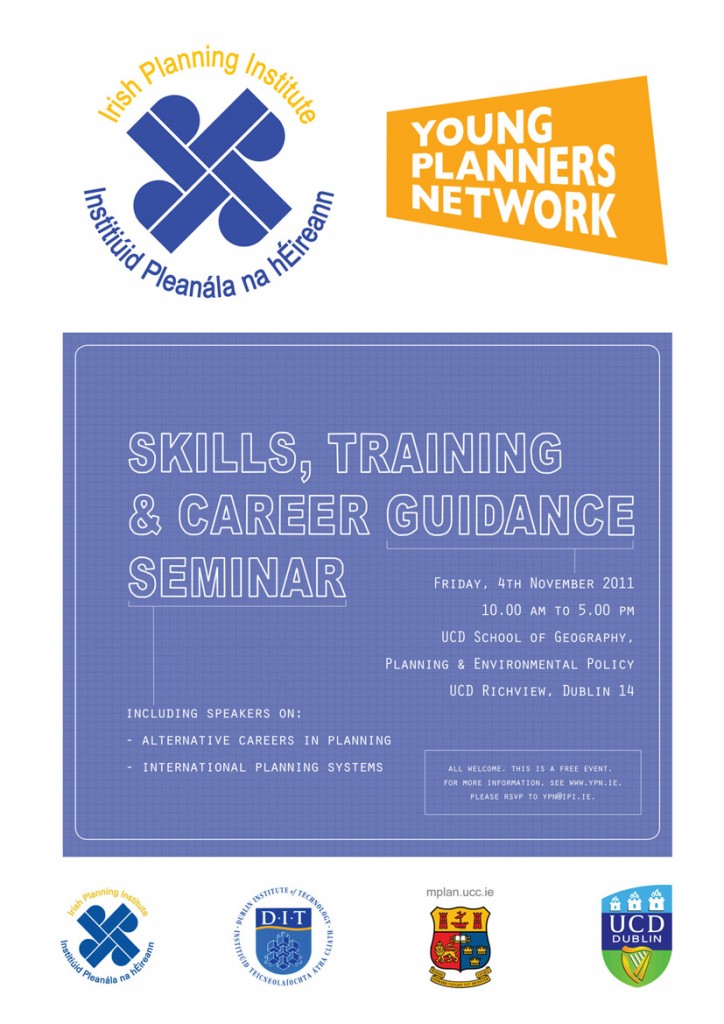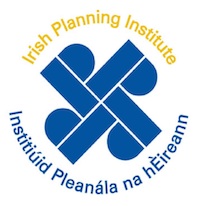The IPI is looking for Young Planners to get involved with the production of the Institute’s quarterly magazine ‘Planning Issues’! You can read the latest edition of Planning Issues here. If you are interested in graphic design or desktop publishing, or if you have any ideas for the magazine, contact Amy at ypn@ipi.ie.
The IPI Young Planners Network is always looking for new articles for our website so, if you have any ideas or articles you would like to see on the YPN website, please get in touch with us at ypn@ipi.ie.
The Greater Dublin Area branch begins its series of events offering a shop window to the on-going work of individual Planning Departments in the region with Dublin City Council. From 5-6.15 pm on Tuesday, 7th February 2012 at the Wood Quay Venue, four planners from Dublin City Council will speak about communiction and collaboration within and outside the Council, focussing on areas where the professional planner’s activities have diversified beyond traditional roles. Speakers will include:
- Dick Gleeson The City Planner will give an overview of the department’s recent activities, many of which stem for the Creative Dublin Alliance and Pivot Dublin.
- Jason Frehill Having worked on the hugely successful DublinBikes scheme, Jason will talk about the next phases, along with the council’s work on wayfinding.
- Pauline Riordan Part of Dublin City Council’s new Innovation Unit, Pauline will give an insight into the work of ‘The Studio’ and the Dublinked open data project.
- Rob Fennelly The council has recently completed the planning phases on a number of housing regeneration projects. Rob will talk of the planner’s role.
The event is free of charge, but the number of places is limited so places will be awarded on a strictly ‘first come, first served basis’. Please email dublinarea@ipi.ie to book your place.
The Irish Planning Institute is delighted to announce the 7th National Planning Awards will take place at 3.30 pm at the Customs House on Thursday, 16th February 2012. This event will showcase the best in all-Ireland planning achievement in various categories. It will be opened by Minister for Housing and Planning, Jan O Sullivan TD. The event is intended to be webcast live. Further details will follow on the IPI website shortly.
Vancouver has a distinct international reputation as one of the most sustainable, liveable and greenest cities if not globally, well certainly in North America. This is a result of the redevelopment of the city along progressive urbanist lines which encourage higher densities and improved public transport. Another significant factor in the successful development of the city is the level of engagement Vancouver has created within its planning process. It has successfully generated a meaningful dialogue between planners, the public and private actors on key planning issues. It has allowed for both the inclusion of outside ideas but also community consensus on large scale urban intensification projects. It continues to push the boundaries in the public consultation process, adopting progressive methods to encourage participation. One of the most recent initiatives is the re:CONNECT open ideas competition, a public design competition for the redevelopment of a key area. The competition was an integral component of the larger public consultation program for this area known as the Eastern Core. The contest was a combination of public and private design submissions followed by the selection of winning entries through a jury panel and public online vote. The purpose of the competition was to stimulate creative dialogue in the redevelopment in one
of the central metropolitan areas. Significantly this competition illustrates the level and standard of public engagement and also the openness to outside ideas Vancouver continues to adopt in its urban redevelopment.
The Physical Context
Following the 2010 Olympics Vancouver continues to focus on large key projects to generate development. One of the city’s current priorities is the redevelopment of the Eastern Core Area. This area is centrally located between the downtown area and the wider city. It is defined primarily by rail infrastructure and vacant, low-intensity ex-industrial and warehouse uses, known as the False Creek Flats. It is also characterised by two large viaduct bridges, which serve as the main traffic arteries to the downtown area. The Dunsmuir and Georgia viaducts are physical and visual barriers between the adjacent residential suburbs and the downtown area. Much discussion from the academic and design community had already suggested proposals for this area and how it can be successfully developed. Acknowledging an existing design debate the City of Vancouver turned its attention to developing this well located, but vastly underused area.
The Process
Following initial transportation studies into the effects of removing part or all of the Viaducts, the City set about reconfiguring the remaining space. This next step involved civic engagement within the planning process to decide on the vision for the area. The city resolved to use a public design competition at the initial stages of the planning process. In doing so it was hoped that public proposals would be more inspired and not simply responding to design proposals set forward by the planning team. The purpose of the competition was twofold: to consult the public about the redevelopment of the area, and also to stimulate discussion within the design community for the area. Rather that directly commissioning a proposal the main function of the competition was to produce fresh, creative design ideas.
This type of initiative has been used successfully by the city previously. For example the Where’s the Square? contest in 2008 involved an open public design element. The 2008 design competition focused on the inclusivity of public actors in shaping the public realm. The greatest difference in the most recent contest was the scale. The re:CONNECT competition promoted the public and design community to contribute and decide on a masterplan vision for a key urban area. This inclusive agenda has been pushed by the current director of Planning, Brent Toderian who, according to his online blog, recognises that “like many North American cities, competitions are still a new skill set for us” but that’s something they’ve been working to change. This competition was a more visible and involved process where it was hoped the public and the professional design community would have a much stronger voice in the development of their city.
The Competition
The re:CONNECT competition attempted to engage the widest possible segment of the population. The first element of the competition involved a design submission stage where individuals from both private firms and the public submitted design solutions for this area. Submissions were expected to meet a number of overarching principals for the future of the area including; place, linkages, green economy etc.. The competition was divided into two entry streams; the fee stream directed at more skilled design professionals and the free element towards the public, which anyone could enter. To maintain a serious standard of work a minimum criteria for public submissions was created including presenting the proposals through graphic illustrations. Only the fee stream included a monetary award for winning entrants and created an incentive for the design community to partake in the competition. The second element of the competition involved deciding on the winning entries. The winning submissions were chosen through both an independent design jury of local and international professionals. Interestingly a separate public online vote was included where the public choice decided on their own winning entries with votes cast on an online website.
It was impressive to see the range and quality of creative solutions proposed by the design community ranging from urban design professionals, the academic community and artists. Over 104 submissions from more than a dozen countries were received. There was a strong international response from countries such as Poland, Turkey and even Ireland, as well as a wealth of local submissions from community groups, affected residents and the general public. Similarly, it was remarkable to witness level of response from the public over a planning and design issue, evident through the internet submission and the comments left on the online website. It was however worth noting that the online voting system for the public to decide on winning entries was somewhat limited in that it was difficult to read the visual data online. Undoubtedly though the competition generated tremendous public and media attention and included a greater variety of actors within the design process then would have been previously been imagined. Although the City of Vancouver recognises that was it a large additional step in the public consultation process they confirmed the potential to include design competitions in future redevelopment schemes at this scale and the benefits of doing so.
The Outcome
Although no decisions on the future of the viaducts or the area are being made through re:CONNECT competition, the ideas generated will undoubtedly help inform the planning for the Eastern Core Area. In particular, the ideas will shortly feed into the Downtown Transportation Plan and the Eastern Core Policy due to be reported in Summer 2012. Positively, the future planning strategy aims to include the best elements of all of the proposals. This initiative illustrates how Vancouver has encouraged a consistently open and dynamic commitment to engaging its public in decisions which shape the future outcomes of the city. It highlights an openness to new forms of civic engagement and commitment to allow for innovation and creative solutions within the planning processes through public design competitions. Although design competitions are not a new vehicle for generating ideas the scale of inclusively, openness and engagement in this project are highly commendable. In Ireland where the scope of public and private participation in the design process are only now taking tentative steps towards increased consultation and more inclusive governance there are significant lessons to be learnt. The importance of embracing equally the public and private sector for solutions to key planning issues and allowing a reflexive and supportive relationship are unquestionable.
Catherine Neill M.Plan graduated from University College Cork in 2011 and now works in Engineering Services in the City of Vancouver.
Limited places remain for the IPI YPN Skills, Training & Career Guidance Seminar, which is due to take place on Friday, 4th November 2011 at the UCD School of Geography, Planning & Environmental Policy, UCD Richview, Dublin 14. This is a FREE event and all are welcome. RSVP now to ypn@ipi.ie to avoid disappointment – we look forward to seeing you there!
Continue reading Limited Places Available: IPI YPN Skills, Training and Career Guidance Seminar
Sustainable travel, new urban initiatives and learning from past mistakes were all central themes of an interesting and extremely well-attended IPI Young Planners Network launch event entitled ‘Planning for Economic Recovery’ on 6th October last. Hosted in the salubrious Convention Centre Dublin, high-profile speakers on the night included Andrew Montague, Lord Mayor of Dublin; Frank McDonald, Environment Editor of ‘The Irish Times’; and, Ciaran Cuffe, former Minister of State for Planning and Climate Change. Each presentation was diverse and informative, and culminated in a panel discussion with questions from the audience.
Following a brief welcome and introduction from Brendan Allen, President of the Irish Planning Institute, the Lord Mayor of Dublin spoke of the importance of making our urban centres attractive, the organisation of space and learning from the challenges of urban decay in recent decades. The issues and challenges faced by the ‘rates system’ in Ireland reflected the diversity of considerations in urban planning, while the opportunity represented by the houses of Georgian Dublin was also discussed. The importance of access to services and facilities, permeability throughout urban areas and the promotion of cycling (such as the hugely successful DublinBikes scheme) gave all attendees plenty of food for thought.
The Lord Mayor of Dublin was followed by Frank McDonald, who spoke of the imperative of avoiding past mistakes and the egregious planning errors which totally ignore principles of sustainable development. Controversial schemes such as the Casino/Leisure Development at Two-Mile Borris in Co. Offaly, the proposed National Children’s Hospital at the Mater site in Dublin (a Strategic Infrastructure Development) and roads proposals at Ennistymon, Co. Clare were all used as case study examples. Mr. McDonald spoke of the need to rebalance revenue in Dublin and elsewhere to facilitate worthy schemes rather than those which destroy their environs.
Ciaran Cuffe completed the terrific line-up, with a clever collection of ’10 things a young planner should know’. Mr. Cuffe spoke briefly under strands such as the importance of a directly elected Mayor (Power to the People), the inclusion of children in the planning process, the opportunities for fairness and synergies through NAMA activities, and the value of high density development (and not necessarily high rise), interweaving international examples throughout.
The event closed with a panel discussion covering numerous topics, from Core Strategies to the Smart Economy, from the Port Tunnel to what planning can achieve…and everything in between! A tour of the Convention Centre Dublin followed by a social tipple brought an end to a very successful and well organised event. Roll on YPN’s next event on 4th November: a Skills, Training and Career Guidance Seminar (see www.ypn.ie for more details on this FREE event).
Stephen Purcell is a Committee Member of the IPI Young Planners Network. Stephen is an Associate with Downey Hynes Partnership.
The IPI YPN Skills, Training and Career Guidance Seminar will take place on Friday, 4th November 2011 at the UCD School of Geography, Planning and Environmental Policy, UCD Richview, Dublin 14. The event seminar will include a series of short talks and lectures on international planning systems and alternative or non-traditional careers in planning. More details and detailed programme to follow.
THIS IS A FREE EVENT AND ALL PLANNERS AND STUDENT PLANNERS ARE WELCOME. Places are strictly limited so please book early to ensure your place. RSVP to ypn@ipi.ie – we look forward to seeing you there!!
The Irish Planning Institute is pleased to announce details of the 2011 Irish Planning Institute Autumn Conference, which will take place on Friday, 21st October 2011 at the Gibson Hotel, the Point Village, Dublin 1 on the topic of ‘Appropriate Assessment and Strategic Environmental Assessment’. This year’s Autumn Conference will build on the success of the 2009 IPI Autumn Conference by reviewing recent developments in legislation, policy and guidance concerning Appropriate Assessment of the impacts of plans and projects on Natura 2000 sites. The aim of the Conference is to provide attendees with practical solutions to the difficulties and challenges that arise in the undertaking of Appropriate Assessment and Strategic Environmental Assessment. In addition, through panel discussion, the Conference will provide attendees with a forum for the exchange of views on the implications for spatial planning in Ireland of recent developments in environmental law and policy.
The planning system is typically where the areas of Appropriate Assessment and Strategic Environmental Assessment are generally encountered by practitioners. Many projects, ranging from a single dwelling to a county development plan, will require one or both of these assessments. Whilst there has been much focus in recent times of the role of ecologists in these fields, it is apparent that planners (in their role as the competent authority) are usually the decision makers in relation to such issues. The purpose of this conference is to ensure all participants in the planning process (planning officers and local authority staff, planning consultants, Directors of Services, developers, ecologists, members of the public) understand the processes involved and their roles in AA and SEA.
The Conference will include talks from Local Authority Heritage Officers on how to screen for Appropriate Assessment and the opportunities afforded by Appropriate Assessment and Strategic Environmental Assessment for spatial planning. Other speakers will look at how to assess impacts on site integrity and an overview of recent case law in the area. In addition, a panel discussion in which prominent planning professionals will discuss topical issues in a “Questions and Answers” format. Participants will be given the opportunity to submit questions to the panel in advance. For more details and for information on how to book, please see the IPI website.
UCD CPD Modules
UCD Architecture are offering a limited number of places in post-graduate modules this autumn. This is an opportunity for you to develop new skills and sample a post-graduate programme.
Modules include: Design, Culture & Dublin, Urban Design Studio, Mapping, Modelling & Imaging, Architectural Practice, Construction Legislation, Procurement & Contracts.
Fees: €575 per 5 ECTS and €1,150. per 10 ECTS module. This includes attendance at lectures, tutorials etc. assessments, course handouts, UCD student card and library membership.
Enquiries: architecturecpd@ucd.ie or to Michelle Murray (01) 716 2761 (Monday- Wednesday). Places in these modules are limited and subject to approval through a selection process.
Wind Energy Training
A one day introduction to wind energy training will take place on the 18th of August 2011. The course is organised through Skillnets and the Irish Wind Energy Association. This one day course will provide a comprehensive introduction to the fundamentals of wind energy. Anyone wanting to gain an overview understanding of the wind energy industry will benefit and topics to be covered include an overview of the wind industry, planning issues, grid connection and a view to the future.
After the course participants will understand the fundamentals of wind power development and have an insight into some of the main challenges and opportunities facing the sector over the next decade. Skillnets offer some free training to job-seekers. Further details can be obtained from Johanna Cafferkey, Tel: 045 899 341, Email: johanna@iwea.com.

























